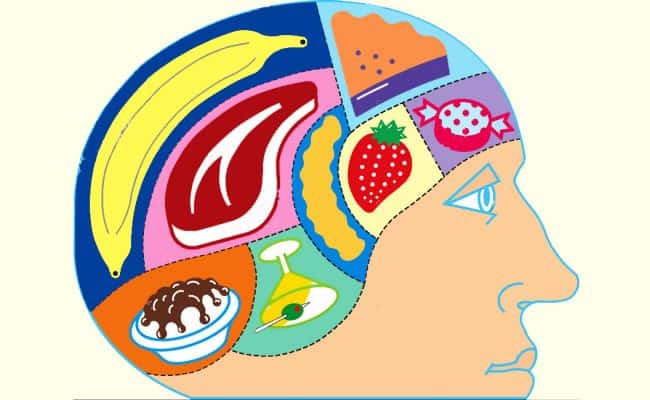
To lose weight we need to be burning more calories through physical activity than we are consuming through food. This sounds simple in theory, but in practice it can be much more difficult to achieve this negative energy balance and lose weight. Over the years most people have developed unhealthy habits that have led to weight gain which can be very difficult to break as they have been part of your life and routine for so long.
When you are starting a weight loss plan, although some changes may be easy to make, it can be these long term habits that you have done for years that prevent you for losing the weight you want, no matter how hard you are working in other areas.
To break these habits that you may have had for many years takes a lot of discipline and self-control; however, if you manage to do it you will reap the weight loss rewards. In order to change your weight, it may be necessary to completely change your habits, getting rid of unhealthy old habits and instead developing healthy new ones to replace them.
Here are some common bad eating habits that may be stopping you from losing weight and how to beat them.
Mindless Eating
Mindless eating is particularly harmful for weight loss because as the name suggests you are not thinking about what is going into your mouth and body. Often you will have no idea how much food or how many calories you have consumed, which can be dangerous in terms of weight gain.
Mindless eating habits are often developed in conjunction with doing other activities, for example munching on potato chips whilst watching TV every night or wandering to the fridge for a left over snack just for something to do on a boring Sunday afternoon.
Maybe it’s the mid-afternoon chocolate bar at work that breaks up the day and gives a bit of enjoyment in a long afternoon, or even finishing up the leftovers on the children’s plates every night although you are not really hungry.
Whatever mindless eating activity you do, it can easily become a habit which is such a normal part of your routine, that even if you are trying to lose weight, you are not really aware you are doing it. In this way you can accumulate a huge amount of extra calories in addition to your normal meals.
How to beat it:
The only way to stop mindless eating is to become aware of it. To do this, a food journal can be useful as if you write down everything you eat, it can often be surprising and make you aware of how much you are actually consuming.
Once you are conscious of your bad habits, you need to make an effort to replace them with good ones. For example, replacing your TV chips with a healthy snack such as vegetables sticks, or even doing something else to keep your hands occupied whilst watching TV so you can’t reach for food. It may sound strange but activities such as knitting can stop you from eating so much during times when you are relaxing. (See also: How to stop binge eating)
Eating on the run
With the stress of everyday life these days it can be hard to find time to sit down and enjoy food slowly. Before you realize it, eating on the run or whilst doing other things can be a regular occurrence, be it a coffee and muffin on the way to work, a takeaway sandwich and cookie at your desk for lunch or a quick drive through for dinner after picking up the kids from various locations.
Eating on the run can be bad for your weight loss in numerous ways, for one fast, portable meal options are not always the healthiest and can provide far more fat and calories than your need. You are also more likely to overeat, as you are not aware of what you are eating, (due to the fact that you are doing more than one thing), and also not giving yourself the time to digest and register that you are full properly.
How to beat it:
Although time can obviously be short, try to make more time to sit down and concentrate on your meal. Even if it is only fifteen minutes, keeping this time to focus on your food can help you to make healthier choices and be more aware of what you are eating and how much.
This can also help you to de-stress in a busy day by taking a moment for yourself. If time is short, try to get organized so that you have the healthiest options possible at your disposal. Spend time at the weekend cooking for the week ahead and freeze individual portions so you can have a healthy meal in minutes and are less likely to find something on the run.
Provide yourself with healthier snacks to keep in the car such as nuts and dried fruit to nibble on when hunger strikes to tide you through to the next meal. Keeping non-perishable foods at work such as tins of tuna and whole grain crackers can make a healthy lunch when you do not have time to bring something from home.
Using food as a reward
From our childhoods, food and particularly unhealthy food, is often used as a reward for good behavior. Who doesn’t remember their parents telling them they could have dessert only if they ate all their vegetables? This habit often carries on well into adulthood, with many adults still using ‘treat’ type foods and alcohol as a reward for a hard day, a long workout or an achievement in work.
This is fine if it really is a one off event, but if you are rewarding yourself through getting through a stressful day on a daily basis; it can be a real problem for weight gain.
How to beat it:
Instead of rewarding yourself with food treats, try to find non-food based rewards to motivate you to continue or to unwind after a long day. Long baths, a new outfit or trip to the hair salon or even some time out reading a book can all be rewarding and relaxing and will have no effect on your weight.
Skipping Breakfast
Many people skip breakfast for a variety of reasons including not being hungry early in the morning, not having time, or trying to cut back for weight loss. However, eliminating breakfast is a habit that is really more likely to hinder weight loss than help it along.
Breakfast is important to kick start the metabolism, if this does not happen your body is likely to start conserving energy in the form of fat, as it has not received any energy or nutrients since the night before. People who eat breakfast are also more likely to eat more healthily and in a more controlled way throughout the day, whereas those who skip can often reach for an unhealthy option to curb their extreme mid-morning hunger and end up overeating on the wrong types of food.
How to beat it:
Eating a healthy breakfast sets you up for a healthy day and provides valuable nutrients, so make time to eat something that is high in fiber and ideally contains low GI carbohydrates, low fat protein and some form of fruit or vegetables.
If you can’t stomach much early in the morning try a homemade fruit smoothie with fresh fruit and yogurt or make some fiber packed dried fruit and seed breakfast bars for days when there is less time.
Remember, coffee alone does not count as breakfast and try to limit consumption of high fat meats, pastries, white bread and large quantities of juice which all provide a lot of calories.










